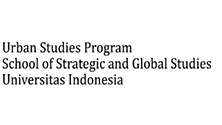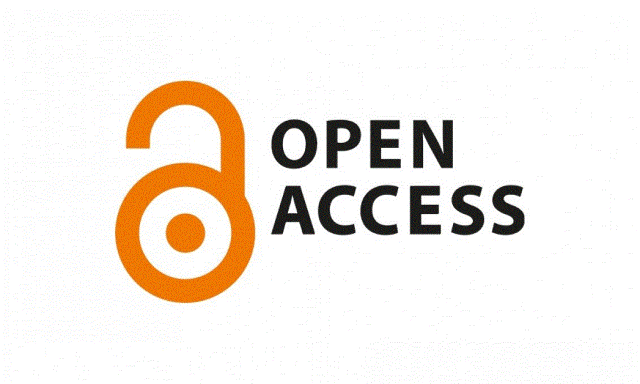Abstract
Background: Integrated Service Post (Posyandu) is a community-sourced health center that belongs to the community and is integrated into the lufe and culture of the community. Lack of community participation in the utilization of Posyandu is one of the problems that hamper the implementation of health services through Posyandu. Domain factors of low participation are from family support, knowledge and attitudes of mothers of toddlers. This support D/S coverage (D is the number of toddlers weighed and S is the number of all toddlers in the area) which is not meeting the national target of 80%.
Aims: This study aims to determine the factors associated with the motivation of mothers of toddlers to participate in Posyandu activities in Banda Raya.
Methods: This study uses qualitative-quantitative methods with a cross-sectional research design.
Results: The results of data processing showed that the characteristics of respondents in the Banda Raya sub-district area had a proportion of maternal participation in the Posyandu category with a less role of 53.41% more dominant that those who participated (46.59%). The factor that influences the level of motivation of mothers of toddlers to Posyandu distance. Community participation in Posyandu activities is only 50% present to the Posyandu, this shows that the target in the health sector has not been achieved.
Conclusion: To enhance knowledge about the benefits of Posyandu, the Puskesmas can conduct counselling or health promotion about the benefits of Posyandu so that health workers, community leaders, and related agencies can increase axposure about Posyandu to the community for revitalization.
References
Adistie, F., Maryam, A. N. N., & Lumbantobing, V. (2017). Pengetahuan Kader Kesehatan Tentang Deteksi Dini Gizi Buruk Pada Balita Di Wilayah Kerja Puskesmas kecamatan Parigi Kabupaten Pangandaran. Jurnal, 6(3), 173–177. https://doi.org/10.24198/DHARMAKARYA.V6I3.14844
Amalia, A. D. (2023). Strategi Peningkatan Kesadaran Akan Bahaya Stunting Melalui Peran Klinik Kesehatan. Jurnal Pengabdi, 6(2), 86. https://doi.org/10.26418/jplp2km.v6i2.68953
Harmin, Risky, S., & Munir, S. (2023). Evaluasi Tata Kelola Sistem Rujukan Kesehatan Di Puskesmas Kabupaten Konawe Utara. Media Publikasi Promosi Kesehatan Indonesia, 6(7), 1374–1383. https://doi.org/10.56338/mppki.v6i7.3563
Hepitalita, Y., & Samul, Y. (2019). Faktor-Faktor Yang Berhubungan Dengan Perilaku Ibu Dalam Partisipasi Di Posyandu Balita Dusun Muntung Ata. Jurnal Wawasan Kesehatan, 4(1), 27–40.
Hermawan, A., & Rusdi, M. (2023). Faktor-Faktor yang Berhubungan dengan Kunjungan Ibu yang Memiliki Anak Balita ke Posyandu di Kelurahan Panambungan Wilayah Kerja Puskesmas Panambungan. Media Publikasi Promosi Kesehatan Indonesia, 6(10).
Hidayat, taufik. (2017). Posyandu Sebagai Soft Power Indonesia Dalam Diplomasi Kesehatan Global. Intermestic: Journal of International Studies., 1(2), 190. https://doi.org/10.24198/intermestic.v1n2.8
Kementrian Kesehatan. (2020). Pengertian Balita dan Standar Berat Badan Anak Laki-laki dan Perempuan usia 0-59 Bulan di Indonesia.
Kesehatan, D. (2023). Dinas Kesehatan Kota Banda Aceh Targetkan Kunjungan Bayi dan Balita ke Posyandu Cpai 85 Persen. Dinas Kesehatan Kota Banda Aceh.
Nasrullah, M., & Puspaningtyas, A. (2023). Optimalisasi Reformasi Pelayanan Kesehatan Melalui Program E-Health Pada Puskesmas Jagir Kota Surabaya. Journal of Administration and Social Science, 2(4), 132–142. https://doi.org/https://doi.org/10.55606/jass.v4i2.396
Nevia, I. E., Umar, M. Y., Sulistiawati, Y., & Komalasari. (2021). Pengaruh Penyuluhan Baby Spa Terhadap Tingkat Pengetahuan Ibu di Posyandu. Wellness and Healthy Magazime, 3(1), 75–79.
Rahmatika, S. D., & Djuminten. (2019). Hubungan Pekerjaan Ibu dan Dukungan Keluarga Dengan Partisipasi Panimbangan Balita Ke Posyandu Wilayah Kerja Puskesmas Karangmojo I Kabupaten Gunung Kidul. Jurnal Kesehatan, 6(1), 9–17. https://doi.org/10.35913/jk.v6i1.112
Rangkuti, J. A. (2023). Determinan Stunting pada Balita di Kecamatan Padangsidimpuan. Media Publikasi Promosi Kesehatan Indonesia, 6(4), 708–713. https://doi.org/10.56338/mppki.v6i4.3381
Sintiawati, N., Suherman, M., & Saridah, I. (2021). Partisipasi Masyarakat Dalam Mengikuti Kegiatan Posyandu. Lifelong Education Journal, 1(1), 91–95. https://doi.org/10.59935/lej.v1i1.2
Sugiono. (2012). Metode Penelitian Pendidikan:Pendekatan Kualitatif, Kuantitatif, dan R&D. Alfabeta.
Wadu, F. L., Talahatu, A., & Boeky, D. (2023). Faktor-Faktor yang Berhubungan Dengan Tingkat Partisipasi Ibu Ke Posyandu Di Wilayah Kerja Puskesmas Bunase. Jurnal Pangan Gizi Dan Kesehatan, 12(2), 90–101. https://doi.org/10.51556/ejpazih.v12i2.199
Yustanta, B., Setyorini, H., Hanifah, S., Fatikasari, C., & Haryani, R. (2020). Optimalisasi Kunjungan Posyandu Balita Melalui Program Inovasi “Corong Posyandu.” Journal of Community Engagement and Empowerment, 2(1), 9–14.
Zulkifli, Z. (2015). Metodoloi Penelitian Kualitatif dan Kuantitatif: Petunjuk Parkts untuk Penyusunan Skripsi, Tesis dan Disertasi Tahun 2015. CV Budi Utama.
Recommended Citation
Hariyanti, Susi and Hartono, Risky Kusuma
(2024)
"Analysis of Mothers Participation in Bringing Their Toddlers to Posyandu in the Banda Raya Community Health Center Area, Banda Aceh City in 2023,"
Cities and Urban Development Journal: Vol. 2:
No.
1, Article 3.
DOI: 10.7454/cudj.v2i1.1022
Available at:
https://scholarhub.ui.ac.id/cudj/vol2/iss1/3






